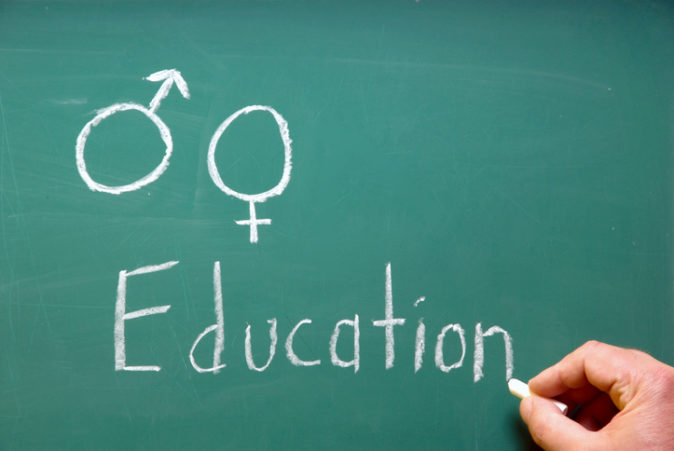Anyone who developed a liking for Korean dramas during the lockdowns will be familiar with the term ‘higher-ups’. South Korea is still quite a deferential society, and ‘higher-ups’ are the people who make the key decisions by which we live our lives.
There probably was a time when higher-ups were sure-footed individuals who made ideology-free sensible choices for the benefit of all. Alas, no longer, as the chaos in Afghanistan, the ‘lab-leak’ hypothesis for the origins of Covid or the ongoing politicisation of the virus currently bring home to us. Society’s quickening pace of change, the ease of instant world-wide communication and the politicisation of all fields of activity have contributed to the evident uncertainty, inattentiveness, and foolishness that we regularly witness.
The World Health Organisation (WHO) is among those ‘higher-ups’ and its competence across all the areas it covers is open to doubt.
The WHO plays a role in advising the world on sexual and reproductive health and rights leading it to promote holistic sexuality education, which underpins many Relationships and Sexuality Education (RSE) programmes being developed today. The WHO is usually direct in its intentions even if its language is not always as clear. Previous RSE programmes from the WHO aimed at reducing unplanned pregnancies and the prevalence of sexually transmitted diseases but there is no evidence as to their effectiveness. Indeed, a major international review from 2016 of peer-reviewed articles which covered 55,000 students found that such programmes had no demonstrable effect on the prevalence of HIV, or other STIs. There was also no apparent effect on the number of young women who were pregnant.
Undeterred, the WHO now has a new, holistic sexuality education model that, arguably, encourages adolescents to ‘experiment’ with their sexuality and does not have any public health indicators to measure success. The model has taken on board revolutionary new ideologies on gender identity and on what we are now to regard as sexually normative, and seeks to advance viewpoints which are unsubstantiated by medical science itself.
This new almost moral-free, non-judgmental model is the go-to reference for RSE guidelines now being drawn up by the National Council for Curriculum and Assessment. No sexual behaviour can be regarded as normative. Consequently, a programme should not dissuade young people from having sex with one another, once they reach the age of consent, regardless of whether they are in a relationship of some kind or not. The focus is on preparation and development.
Undoubtedly, there will inordinately strong pressure on Catholic schools to accept what the NCCA propose. Individual Catholic schools will be placed in a quandary, as these try to tip-toe through the minefield. There are people who will seek to ensure RSE is taught in every corner of Ireland in line with publicly available WHO norms. There will be others who contend that values can be somehow infused into the NCCA value-free model, arguing that we have managed to do that in the past. Given that WHO consider RSE as starting in early years and comprising cognitive, social, emotional, interactive and physical aspects and not just the biological facts, it is likely that every difference between the Catholic and secular worldviews on gender, abortion, pornography, sexual identity, family, marriage and surrogacy will become areas of contention.
A Catholic RSE programme cannot simply be a watered-down version of a values-free secular programme. Young people from an early age need to have ideals presented to them, despite how demanding these may look to some. They need to hear about sex and relationships in the context of virtue, especially virtues such as discipline, self-mastery, modesty, respect for others and courage. The place of sex as an intimate expression of human relationships reserved for marriage and the characteristics of friendship relationships are all topics that require age-appropriate inclusion in senior-primary and junior-secondary programmes. They also need to hear about human nature and the ideological attempts to distort what it means to be human. In 2014, Facebook recognised two genders – now it currently acknowledges 58.
Such programmes also need to be informed by Catholic moral teaching. Serious work is urgently required by Catholic authorities to get this balance right if they are to be faithful servants or stewards and give young Catholics their proper portion of food at the right time. (St Luke’s Gospel, 12:35).
This task cannot be left to the higher-ups alone. Or rather, parents are the higher-ups who really matter when it comes to the education of their children. Catholic parents and Catholic schools should expect their right to be different to be fully respected in a modern democratic society and should not submit to any administrative or political bullying that might be used to bring them to heel. For this to happen, greater Catholic witness will be required.
The author’s latest book ‘Our School is Catholic – So What’ is now available for purchase online at www.sowhat.ie . It addresses all the key issues facing Catholic schools today with recommendations on how adopting a clear Catholic ethos is possible. It is a ‘must read’ for anyone wanting to understand and advance Catholic education.
The book is being launched on September 22 via Zoom. See www.sowhat.ie for details.
















